Your dad has recently moved into an assisted living community that provides the support he needs. He’s says he’s doing fine there, but you have concerns. How can you keep tabs on his health and happiness—especially if you live some distance away?
Call on the team at the assisted living community for the support and peace of mind you seek. The staff has the ability to monitor your elderly parent’s day-to-day well-being on many levels.
- Communication
Introduce yourself to one or more people on the community’s staff, whether that’s the executive director, the nurse who helps Dad with his medications, or a counselor at the community. Establish relationships with those who are caring for your parent, and ask if you might periodically call them or send emails to check in. Let them know how to contact you if your dad appears to be struggling with something or there’s a change in his condition.
- Technology
Today’s technologies offer wonderful support to those caring for your dad. These tools might include low-level cameras that detect if your parent has fallen, call-in systems that he can use to check in with staff each morning, or “wearable tech” solutions such as wrist or pendant monitors he can access in an emergency situation.In addition to safety, many communities offer Wi-Fi connections so that you and your dad can visit frequently via Skype or Facetime. These technologies allow you to stay connected when you can’t be there in person—and allow you to monitor how your parent appears, seems, and sounds on any given day.
- Observation
Without detracting from your dad’s privacy, members of the general staff can provide a wealth of information about his well-being, simply by virtue of seeing him on a day-to-day basis. A server in the dining room, for example, may notice if he appears to be having difficulty chewing or swallowing. The fitness director may see him falter after rising from a chair. The housekeeper may notice a change in the tidiness of his apartment. Their concerns will be relayed to you so that you can discuss what might need to happen next.
- Personal attention
The relationships your dad has with the persons attending to his daily needs are invaluable. These caregivers are often the ones to “follow a hunch” and check in on your dad, even if they’re only acting on a feeling that something’s amiss. In fact, the trust that develops between your parent and his personal caregivers may give him the confidence to discuss something that’s concerning him—long before he’s ready to “bother” you with it. While the content of these shared exchanges can remain confidential, they allow your caregiver to let you know if Dad needs a change in his care plan. Other residents can help monitor your elderly parent as well. If members of Dad’s afternoon card game see that he’s not his usual jovial self, they may encourage him to get checked out—or ask the nursing director to follow up with him.


